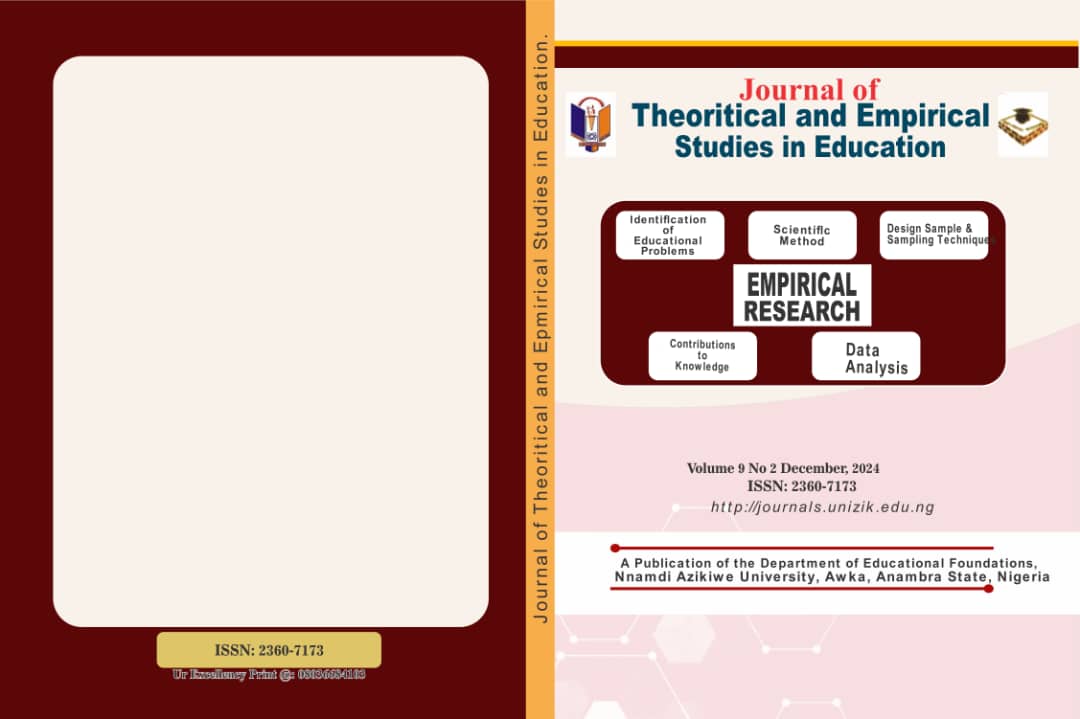RELATIONSHIP BETWEEN PARENTING STYLES AND STUDENT’S MENTAL HEALTH OUTCOMES AMONG SECONDARY SCHOOL STUDENTS IN UYO METROPOLIS OF AKWA-IBOM STATE, NIGERIA.
Keywords:
Parenting Styles, authoritarian, authoritarian, democratic students’ Mental Health Outcomes.Abstract
This study examined the Relationship between Parenting Styles and Student’s Mental Health Outcomes among Secondary School Students in Uyo Metropolis of Akwa-Ibom State, Nigeria. The study employed correlational design. The population was two thousand one hundred and fourteen (2114) SS1 students within Uyo metropolis, the sample for the study consisted of 241 students. Two
main instruments title Parenting Styles Questionnaire (PSQ) and Student’s Mental Health Outcome Questionnaire (SMHOQ) used for data collection. Data were analyzed using inferential statistics. The inferential statistics of Pearson Product Moment Correlation (r) was used to test all the three hypotheses at 0.05 alpha level of significance. Findings revealed that a significant positive relationship existed between authoritative parenting style and students’ mental health outcomes (r = 0.505, p = 0.037). While inverse significant relationship exists between authoritarian parenting style and students’ mental health outcomes. (r = -0.736, p = 0.044). Also, significant positive relationship exists between democratic parenting style and students’ mental health outcomes. (r = 0.882, p = 0.022). Based on the findings, it was recommended that Educational Psychologist should organize educational programs for parents focus on
encouraging authoritative practices that balance structure with support, enhancing students' emotional and psychological well-being.




